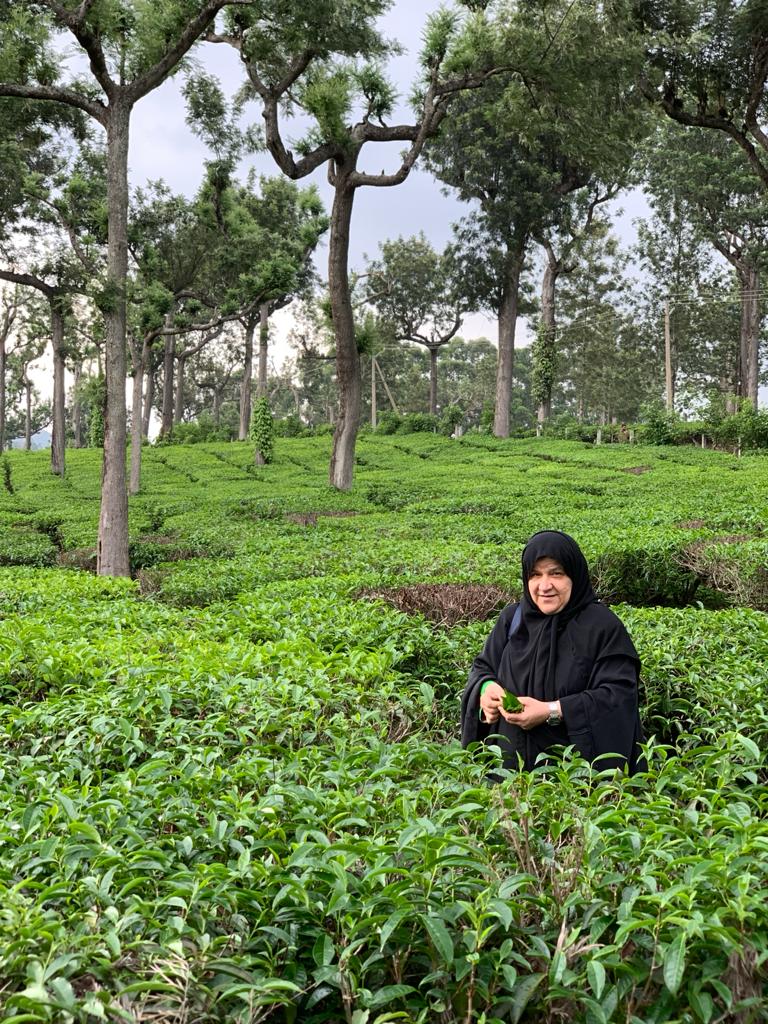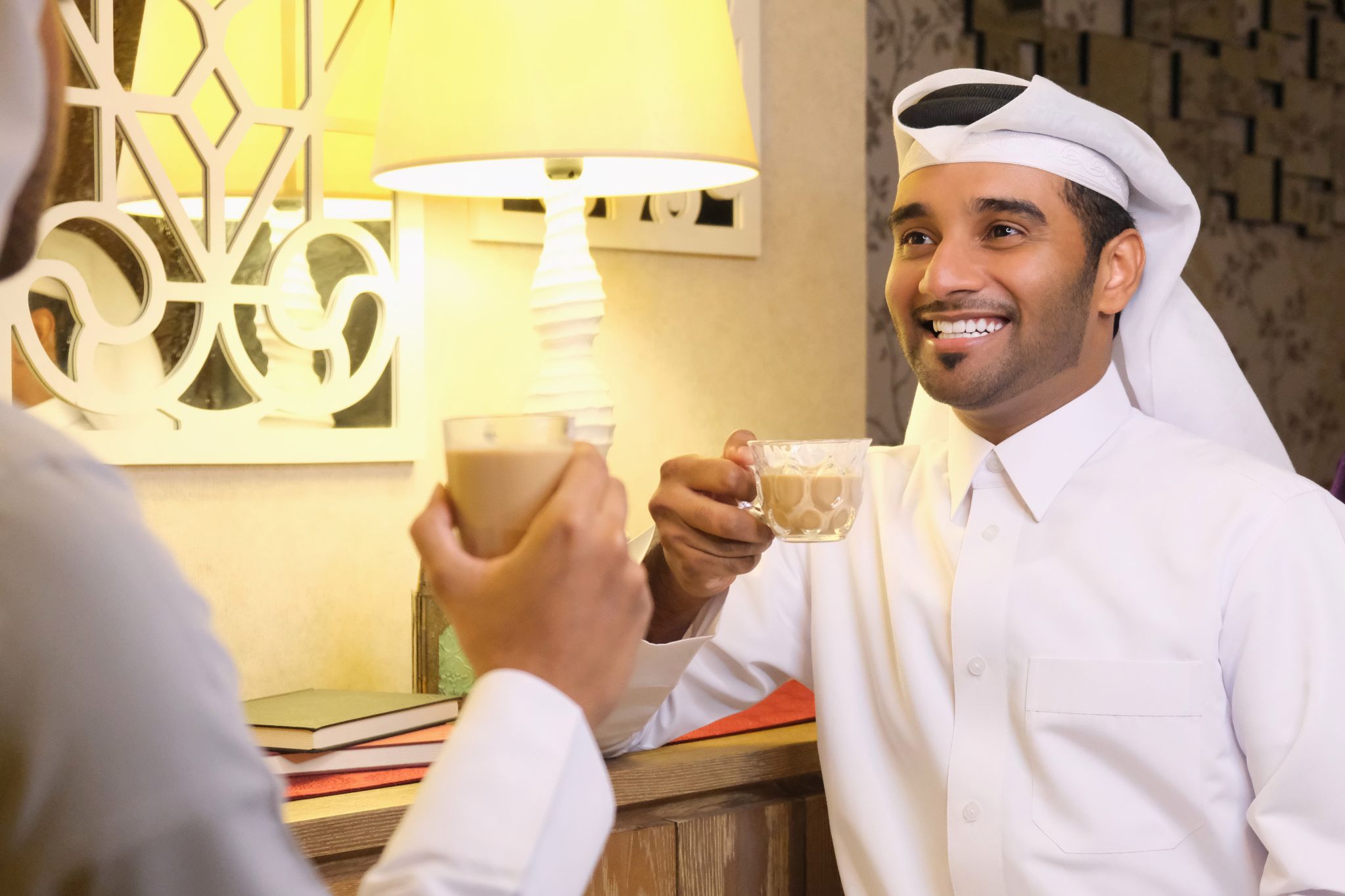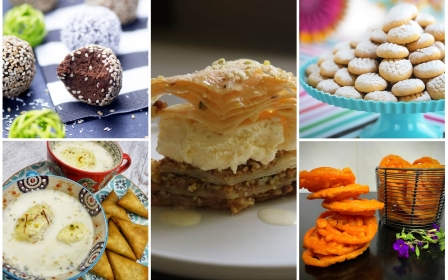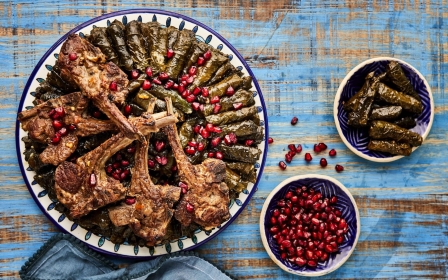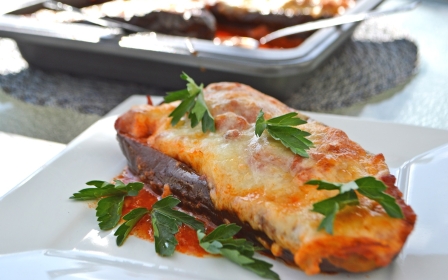From Delhi to Doha, Karak tea is the perfect refreshment
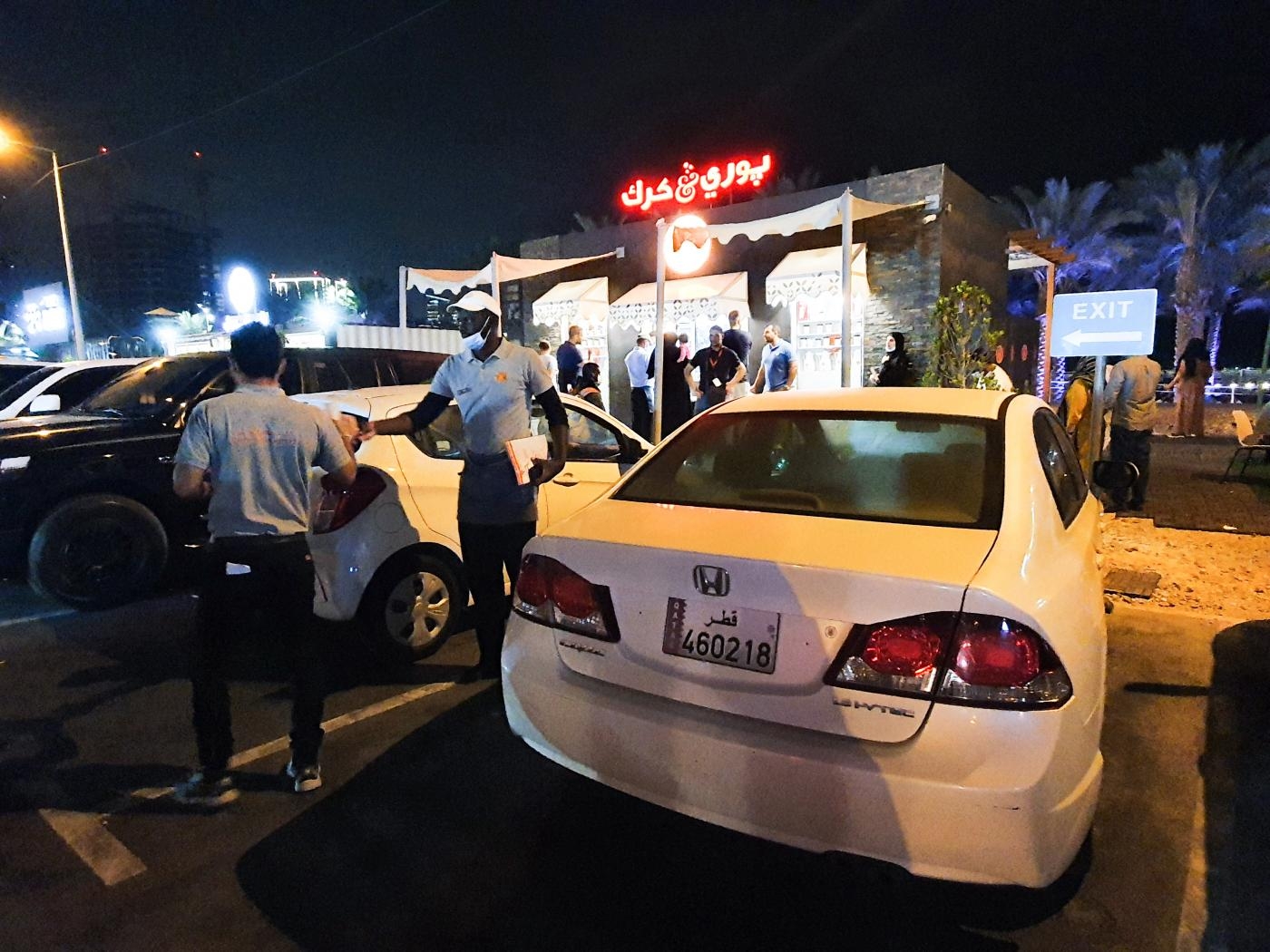
A skilful waiter balances several trays of paper cups filled with hot, sweet karak tea, as he weaves through a cavalcade of cars to the ones at the front.
The cars are parked up along the curb outside a small shop selling the tea out of a hatch. As the customers, who remain seated in their cars, pay the couple of riyals for their hot drinks, the next car in the queue beeps for attention and eases forward to make its order.
This is what it can be like grabbing a hot drink in the Gulf.
This drive-through tea shop experience is not a business modification due to Covid-19, but has long been part of tea culture in the Middle East - specifically in Gulf countries where hot weather means many shops and restaurants offer a service where the customer doesn’t have to leave the comfort of their car.
“Drinking karak in the car is also a rite of passage for the younger Qatari,” says Ghaffan Faraj AlAbdulla, 32. “When they start driving, they don’t want to drive somewhere alone, so along the way they may pick up friends and all ride in the same car together.
New MEE newsletter: Jerusalem Dispatch
Sign up to get the latest insights and analysis on Israel-Palestine, alongside Turkey Unpacked and other MEE newsletters
“They either drive around Doha, or park somewhere and sit in the car listening to music or to watch videos on YouTube – but having a cup of karak whilst doing this adds to the experience. I would say drinking karak with friends adds flavour to the experience. It’s a social event.”
Taste of home
Karak is the name given to a tea usually made with loose black tea leaves, boiled for at least half an hour to make it strong. Fresh or tinned condensed milk is then added and cooked with the tea leaves, sometimes cardamom or other spices are also thrown in. It’s also usually served sweet.
It's popularity led Emirati disc jockey and emcee, DJ Bliss, to produce a song in its honour, I Need a Karak.
The word karak itself means "strong" in Urdu and it is said that Pakistani truck drivers would break up their cross-country drives by stopping at a roadside stall to drink a cup full before hopping back into their ornately painted vehicles. The strong, spiced tea would wake them up and keep them going.
With the discovery of oil and gas in the mid-70s, migrant workers from South Asia travelled to the Gulf nations to help build the infrastructure for the rapidly developing countries, the workers also took their special blend of tea with them.
The tea provided a simple and familiar taste of home for many of the workers, Abid Mehmood remembers.
In 1975, then just 18 years old, Mehmood travelled to Qatar from Pakistan and says he was one of the hundreds of workers who built the emir’s palace – Amiri Diwan.
“We didn’t take much with us, but we took our tea – it was easy to make, and it kept us going.
“I lived with other workers in our living quarters, and yes we would make our own meals and tea. There were no drive-by tea houses then, well none that I knew of. I’m guessing us bringing the karak over is how it became popular. A bit like when the British introduced tea to the sub-continent.”
It was in the 17th Century that the British discovered tea, after a trade deal with China. And in 1660, diarist Samuel Pepys first mentioned tea calling it “excellent". Tea leaves, expensive at the time, were brewed to a bitter blend and it wasn’t until sugar and milk were added to it that it became popular and more accessible in Britain.
The English then took tea to India when it was under colonial rule, and tea plantations were introduced across the country.
Adapting to a local palate
Shams al-Qassabi, Qatar’s first female trader in Doha's Souq Waqif, has visited the tea plantations in several of India’s states during business trips there to source tea and spices for her popular shop and restaurant, Shay Al Shamous.
The authentic Qatari restaurant serves up a traditional breakfast which includes karak tea, and the shop sells 480 different types of spices.
She says although the word karak may have originated in the sub-continent, the tea drunk in Qatar today is all Qatari.
“Qataris have been drinking tea with milk, chai haleeb, for generations. We used to boil the tea over firewood preparing a strong heavy tasting tea and later we added fresh cow or goat’s milk, as every house in Qatar had livestock back then [in the 70s].
“Later when Rainbow tinned milk starting arriving in Qatar, people used it instead of fresh milk, and some used to add cardamom to their tea too. But the difference between Qatari karak tea and Indian karak tea is that we don’t tend to add ginger or masala (spices).”
She recalls first hearing the word karak as a child, when her father mentioned it after returning from a business trip to India.
Al-Qassabi, 60, says: “Karak came later when the traders from the GCC countries, like my father, used to go to India for trade, and they would sit and drink this, and fell in love with it. My father said their tea was similar to ours, but theirs was strong and spicy.”
She says when "Indian men" later migrated to Qatar to “assist with household duties”, this is when karak was introduced to “every house in Doha. It became even more popular when Indians started their small cafeterias in Doha.
“But they don’t make it how they do in India, they prepare it the Qatari way, they boil the tea with milk, but they do not add any spices, because as Qataris we like it this way. Tea, milk, sugar that’s it. So I’d say karak does have Indian roots but it’s prepared the Qatari way.”
Chapati and Karak, one of a Doha’s many popular tea houses specialising in karak confirms al-Qassabi’s views. Its website states: "The café’s concept takes after a traditional Indian cuisine ritual that entered the GCC region and Qatar 50 years ago and has become ingrained in Doha’s food culture."
AlAbdulla, who likes sipping his karak medium sweet with a touch of cardamom, says: “Karak is part of our culture. It’s comforting to drink, especially when we travel to places like London, or in cooler months here, and we can enjoy it whilst sitting at an outdoor café.”
Learning from elders
In 2014 Chapati and Karak opened its first branch outside of Qatar on London’s Brompton Road.
It is part of a new wave of tea shops in the UK – not serving afternoon tea in dainty Dalton cups – but in paper ones and to a younger crowd.
One of the fastest growing chains of karak sellers in the UK is Chaiiwala. Owned by three cousins (and best friends) Muhummed Ibrahim, Mustafa Ismail and Mohammed Alimohamed, who all learnt how to make tea at the feet of their grandfather.
Chaiiwala's beginners guide to making karak tea for two
+ Show - HideServings: 2
Ingredients
- Loose black tea leaves
- Fresh full-fat milk
- Sugar
- Spices (optional) - cardamom, black pepper, cinnamon
Method
1. Add two teaspoons of loose black tea leaves to a pan
2. Add two cups of water
3. Boil for 30 minutes
4. Then add a cup of fresh full-fat milk, and spices if you prefer. Chaiiwala recommend a pinch of cardamom, black pepper and cinnamon.
5. Simmer for a further 10-15 minutes
6. Pour into cups and sweeten to taste
Ibrahim says: “I was seven years old when I made my first cup of karak.”
The trio’s grandfather, Ibrahim Mahomed, was once a chaiiwala (tea seller) himself in 1920s Delhi.
When he migrated to the UK in 1975, he brought his secret tea recipe with him and continued the family tradition of teaching the boys and men of the family how to make karak.
“It’s been a long-standing tradition and a show of bravado within our family. The men to this day still make the tea,” says Ibrahim. And he’s planning to keep his grandfather’s legacy alive. “The traditions of the family will always be passed down. My son is only two months old. But as soon as he can stand up, he will be at my side making tea, the family way.”
Five years ago, the cousins noticed people were looking for a place to socialise that didn’t involve coffee, shisha or alcohol. Having grown up with karak being central to their day, drinking up to five cups, they decided to open up their own tea shop, and named it in tribute to their grandfather’s profession.
Using a secret blend of five spices and tea leaves from India’s Assam province, Ibrahim says his shop’s karak offers an alternative flavour to Britain’s coffee-loving public. And since the opening of their first store in Leicester - with seating space for only eight people - the company now has 33 outlets across the country and another 198 planned in the UK alone.
Ibrahim says its popularity and success are a result of people having lost the art of making karak at home. “The brewing process for a traditional karak chaii is over 40 minutes. It’s a time-consuming process in today’s fast paced lifestyle.”
The cycle of tea
And centuries after the British first brought tea to India and England, the Chaiiwalas are set to do it again; they now plan to take karak back to India and into Pakistan and the Gulf.
“We have our roots in the East but we’ve developed and grown in the West,” says Ibrahim.
Branded as "Chaiiwala of London", they are optimistic that the name itself will appeal to the Gulf and South Asian markets.
“We know that taking our brand in to those regions will give the customers there a feel of the West but with products that they know and love.”
And with a Chaiiwala recipe book out in May 2021, tea lovers will soon be able to brew their own cup of karak - whatever they call it and wherever they are in the world.
Middle East Eye delivers independent and unrivalled coverage and analysis of the Middle East, North Africa and beyond. To learn more about republishing this content and the associated fees, please fill out this form. More about MEE can be found here.


